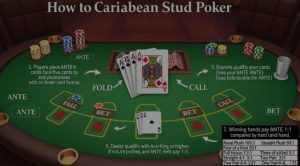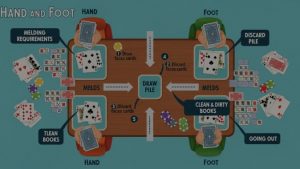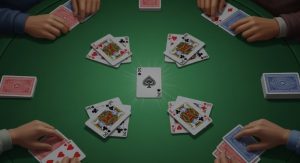The Mental Side of Poker
Technical skill alone doesn’t guarantee success at poker. Your mental state dramatically affects decision quality, with emotional control separating winning players from those who never reach their potential. The best hand reading skills and strategic knowledge become worthless when emotions override rational thinking.
Poker subjects players to constant variance that tests emotional resilience. Bad beats, downswings, and frustrating sessions occur regularly regardless of skill level. How you respond to these inevitable challenges determines long-term success more than any technical adjustment.
Many players dedicate hours to studying strategy while neglecting mental game development. This imbalance leads to players who understand optimal play theoretically but execute poorly under pressure. Balancing technical study with mental game work creates the foundation for sustained success.
Recognizing Tilt Triggers
Tilt manifests differently for different players, but most people have consistent triggers that cause emotional responses. Identifying your specific triggers allows you to develop strategies for managing them before they damage your results.
Bad beats mean the most common tilt trigger. Getting all the money in ahead only to lose to an unlikely river card creates frustration that many players struggle to process productively. The unfairness of the situation overwhelms rational thinking, leading to revenge-seeking behavior and poor decisions.
Losing to players you perceive as worse than yourself creates another potent tilt trigger. When an opponent makes terrible decisions that happen to work out, the injustice feels amplified. Your ego struggles with the reality that bad players sometimes win despite making mistakes.
Personal life stress often manifests at the poker table. Problems with relationships, work, or health create emotional vulnerability that makes poker setbacks feel more significant than they actually are. Starting a session while dealing with unresolved stress multiplies the likelihood of tilting.
Types of Tilt
Tilt takes many forms beyond the stereotypical image of a player making wild bluffs and calling down light. Knowing the various manifestations helps you recognize when your decision-making becomes compromised.
Aggression tilt involves overplaying hands and betting too frequently. Players experiencing this type of tilt convince themselves that more aggression will recoup losses or punish opponents. They three-bet too liberally, continuation bet automatically, and barrel multiple streets with weak holdings.
Passive tilt means the opposite response where players shut down and stop betting their strong hands. Fear of losing more chips leads to excessive checking and calling rather than betting for value. This defensive posture allows opponents to steal pots and realize equity too cheaply.
Revenge tilt targets specific opponents who have won pots against you. Rather than playing optimal strategy, you focus on beating one player and make decisions specifically designed to win their chips back. This tunnel vision causes you to ignore optimal play against other opponents and often leads to calling down light or bluffing in bad spots.
Entitlement tilt emerges when you believe you deserve to win based on your skill or recent play. After running well or playing solidly for an extended period, losses feel unjustified. This mentality leads to forcing action and taking stands in marginal situations.
Strategies for Tilt Prevention
The most effective approach to tilt involves preventing it before it starts rather than trying to recover after emotional control deteriorates. Building strong prevention habits protects your mental state during sessions.
Start each session with clear, achievable goals beyond just winning money. Goals like making good decisions, implementing new strategies, or playing a specific number of hands create success metrics independent of results. This framework helps you evaluate sessions positively even when you lose money but achieve your goals.
Set stop-loss limits before playing and honor them without exception. Decide in advance how many buy-ins you’re willing to lose in a session, then quit when you reach that limit regardless of how you feel. This pre-commitment prevents the common trap of chasing losses while tilted.
Take regular breaks during long sessions to maintain mental freshness. Stand up, walk around, do light stretching, or step outside for fresh air every hour. These breaks give your mind a reset and prevent the mental fatigue that makes tilt more likely.
Managing Tilt During Sessions
Despite prevention efforts, you’ll sometimes find yourself tilting during a session. Having strategies for managing tilt in real-time minimizes damage to your results.
Recognize the physical signs of tilt early. Most players experience physical responses like increased heart rate, tense muscles, or shallow breathing when tilting. Pay attention to these signals and use them as warnings to pause and reassess your mental state.
Take an immediate break when you notice tilt symptoms. Even five minutes away from the table helps interrupt the emotional spiral. Use this time to take deep breaths, remind yourself of your goals, and consciously reset your mindset before returning.
Return to basic strategy when feeling tilted. Complicated plays and advanced concepts become too difficult to execute properly under emotional duress. Simplify your game to straightforward value bets with strong hands and folds with weak hands until your equilibrium returns.
Building Emotional Resilience
Long-term mental game improvement comes from building emotional resilience that helps you weather poker’s inherent variance. This process takes time but yields significant returns in terms of decision quality and longevity in the game.
Reframe bad beats as normal occurrences rather than injustices. When you lose with pocket aces against king-queen suited, recognize that you got the money in good and would make the same decision again. The result doesn’t change the quality of your decision, which is the only factor you control.
Maintain perspective on individual sessions and results. One session is just a tiny sample in your poker career. Losing a few buy-ins means little over thousands of hours of play. Focus on process over results and trust that good decisions lead to positive outcomes over time.
Develop interests outside poker that provide emotional fulfillment and identity beyond your poker results. Players whose entire self-worth depends on winning at poker experience more intense emotional reactions to losses. Having other meaningful activities in your life creates balance and resilience.
Concentration & Focus
Maintaining concentration throughout sessions proves challenging as mental fatigue accumulates. Protecting your focus allows you to make better decisions and notice opponent tendencies you might otherwise miss.
Eliminate distractions during play. Turn off your phone, close unnecessary browser tabs, and create an environment conducive to concentration. Every distraction pulls attention away from the game and leads to missed information or rushed decisions.
Practice single-tabling or playing fewer tables than you think you can handle. While multi-tabling increases volume, it often decreases decision quality and makes focus more difficult. Many players would earn more money playing fewer tables with better focus than grinding many tables with diminished attention.
Stay engaged during hands you’re not involved in. Watch how opponents play their hands and note tendencies you can exploit later. Players who check their phones or browse the internet between hands miss valuable information.
Session Selection & Timing
Playing when you’re mentally prepared dramatically improves performance. Not all times are equally suitable for poker, and recognizing when to play versus when to skip a session protects your bankroll.
Avoid playing when tired, stressed, or emotionally compromised. Your best decision-making occurs when you’re well-rested, in a good mood, and free from external worries. Playing in suboptimal mental states invites mistakes that cost you money.
Consider your energy levels and schedule poker sessions during your peak mental hours. Some people think most clearly in the morning, while others perform better in the evening. Identify your optimal times and schedule poker accordingly.
Set time limits before sessions and stick to them. Playing too long leads to mental fatigue and deteriorating decision quality. Most players can maintain peak focus for 2-3 hours before needing a substantial break.
Post-Session Review
How you process your sessions mentally affects your long-term development and emotional control. Developing healthy review habits builds resilience and accelerates improvement.
Review your session objectively, focusing on decision quality rather than results. Identify spots where you made good decisions regardless of outcome, and note decisions you’d change with additional reflection. This process reinforces that you control your decisions, not the cards.
Avoid results-oriented thinking that judges decisions solely by outcomes. Getting all-in behind and sucking out doesn’t make a bad call good. Making a theoretically sound fold that would have won the pot doesn’t make the fold wrong. Evaluate decisions based on the information available at the time.
Write brief notes after difficult sessions about what triggered any tilt and how you managed it. This record helps you identify patterns in your emotional responses and track improvement in your mental game over time.
Long-Term Mental Game Development
Building a strong mental game is an ongoing process rather than a destination. Continuous work on your psychological approach to poker pays dividends throughout your career.
Read books and articles about poker psychology and mental performance. Authors who specialize in the mental game offer frameworks and techniques that accelerate your development beyond what you might discover through trial and error alone.
Consider working with a mental game coach if you struggle with persistent mental game issues. Professional guidance helps you identify blind spots and develop personalized strategies for managing your specific challenges.
Practice mindfulness and meditation to build general mental resilience that transfers to poker. These practices improve emotional regulation, stress management, and focus in all areas of life, including at the poker table.
Success at poker requires mastering both technical strategy and mental game skills. Develop your psychological approach with the same dedication you apply to studying hand ranges and betting patterns, and watch your results improve as you make fewer emotionally-driven mistakes.





